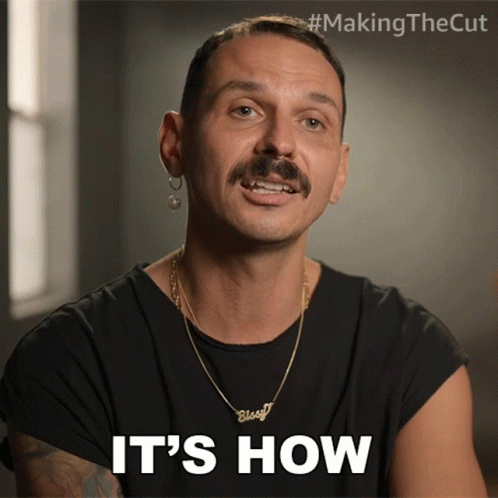Disclosure: Some of the links in this post might contain ‘affiliate links,’ which means if you click on a link and purchase an item, we will receive an affiliate commission at no extra cost to you.
When you know yourself, you'll know your purpose in life. To know yourself, you must become aware of who you are and the meaning of your life.
Dr. Carol Dwecks' research on mindset theory discusses how self-awareness affects one's personal development and achievement. Dweck's studies concluded that individuals with a growth mindset, characterized by a deep understanding of their abilities and potential, are more likely to persevere through challenges and ultimately realize their aspirations (Dweck, 2006), suggesting that knowing oneself enables individuals to navigate life's complexities with resilience and determination, thereby supporting the pursuit of their authentic purpose.
Additionally, the work of Dr. Abraham Maslow on a human's hierarchy of needs claims that realizing one's full potential is contingent upon a deep understanding of oneself and alignment with one's core values and beliefs (Maslow, 1943). This indicates that self-awareness is the cornerstone for unlocking higher levels of fulfillment and living a purpose-driven life.
Psychologist Jordan Peterson has also spoken on the importance of knowing oneself through self-awareness so that one may live a more meaningful life.
Aside from empirical research, Eastern philosophy has touched on the importance of self-knowledge as a catalyst for living authentically with one's true calling. Buddhism and Taoism, for example, emphasize introspection and mindfulness as the path to enlightenment and self-realization. Similarly, Western philosophers like Socrates advocated one must "know thyself," recognizing the profound implications of self-awareness for leading a meaningful and purposeful existence.
In today's podcast episode, "When You Know Yourself You'll Know Your Purpose," we talk about how knowing and accepting yourself helps you live your true purpose.
Listen to the podcast episode "When You Know Yourself You'll Know Your Purpose" here 👇:
Your Life's Purpose Is An Extension Of Your Authentic Self
Your purpose is an extension of your authentic self. However, to truly understand and embrace your authentic self, self-awareness is crucial. Knowing various key aspects of yourself through introspection and self-discovery connects you deeper to your life's purpose.
To know yourself is to know:
- who you are
- what you stand for
- what you care about
- your interests, hobbies, likes, and dislikes
- your gifts, talents, and skills
- your truth
- your human needs
- your vision
- the meaning of your life
- your purpose
When you figure out who you are, you can then bridge the things you've discovered about yourself with your purpose, helping you become self-actualized and fulfilled.
Various psychological and philosophical theories support this idea. Carl Jung, a renowned psychologist, introduced the concept of individuation, which is the process of integrating aspects of one's personality to become a unified and whole individual (Fraser-Thill, 2023). According to Jung, embracing all parts of oneself, including the shadow aspects, is essential for realizing one's true purpose in life.
Furthermore, self-determination theory (Deci & Ryan, 2000) emphasizes the importance of autonomy, competence, and relatedness in achieving personal fulfillment. When fulfilling your life's purpose, which aligns with your authentic self, you'll experience a sense of autonomy in choosing your path, competence in using your unique skills and strengths, and relatedness in connecting with others who share similar values and aspirations.
Your purpose is a reflection of your deepest values, passions, and desires. By embracing your authentic self and honoring your true nature, you'll naturally express your life's purpose as an extension of who you are.

Check out our "Getting Started" series to help you find, live, and unleash YOUR life purpose.
Your Life Purpose Evolves When You Know More About Yourself
As you know more about yourself, your purpose will evolve.
The more self-aware you become, the more you deepen your understanding of yourself—your values, strengths, weaknesses, passions, and beliefs, helping you to gain more clarity and insight about your purpose. As you remember the core of your true identity, you'll learn more of your truth and discover what truly inspires you.
Self-awareness encompasses both introspection and self-reflection. It involves being conscious of your thoughts, emotions, and behaviors, and how they influence your actions.
Research in psychology links the importance of self-awareness to personal and professional success. Studies have shown that individuals with high levels of self-awareness are better equipped to navigate challenges, build fulfilling relationships, and pursue meaningful goals (Goleman, 2018).
When you know more about who you are, your life's purpose will naturally evolve because you'll be more aligned with your authentic self, which will guide you toward activities that resonate with your innermost desires and aspirations.
Psychologist Erik Erikson proposed a theory of psychosocial development, suggesting that identity formation is a lifelong process influenced by experiences and interactions with others (McLeod, 2018). According to Erikson, individuals who successfully navigate the stages of identity development achieve a sense of purpose and fulfillment.
Think about the stories of Dwayne Johnson or Oprah Winfrey. From the time they first became publically known until the present day, they both had defining moments in their respective careers where they had to evolve what they were doing to fulfill the next stages of their life's purpose. From observation, it would seem that both Johnson and Winfrey discovered more of their truth, enabling them to continue their pursuits in the entertainment industry.
Similarly, author and spiritual teacher Eckhart Tolle experienced a profound spiritual awakening after years of struggling with depression and anxiety. Through mindfulness and present-moment awareness, he discovered his life's purpose in sharing the transformative power of presence with others (Tolle, 1999). Tolle's life experiences leading up to his spiritual classic, "The Power Of Now" could have largely been attributed to him knowing more about who he was and his purpose for living.
As you continue to evolve and grow, your purpose will evolve.
To know yourself as the Being underneath the thinker, the stillness underneath the mental noise, the love, and joy underneath the pain, is freedom, salvation, and enlightenment. - Eckhart Tolle

Accept Yourself And You'll Accept Your True Purpose
Accepting your true purpose requires you to accept yourself.
You might own a successful business or work in a high-profile profession, but that might not be your true purpose. Further, you might own a business or have the career you have because you reject doing what is uncommon. Such was the case for Pamela Rosario, a recent guest on The lifepurpose.com Podcast.
During her interview, Rosario discusses her resistance to changing professions but ultimately came to accept her true purpose as an Iboga medicine provider.
Rosario mentions having to accept themselves, their past, and their destiny to accept they needed to transition from their previous line of work to living their true purpose.
Accepting yourself is not merely an act of self-love; it is the gateway to unlocking your true purpose in life. When you embrace who you are and accept yourself completely, you'll receive guidance from the Divine on what you must do to live your purpose.
Self-acceptance is the unconditional embrace of oneself, including both strengths and weaknesses. It involves recognizing and acknowledging all aspects of your identity without judgment or criticism. Instead of trying to become an idealized version of yourself, self-acceptance encourages you to accept yourself as you are in the present moment.
When you accept yourself unconditionally, you gain clarity about what truly matters to you and what brings you fulfillment. This self-awareness empowers you to make choices that align with your authentic self, leading to a more purposeful and meaningful life.
Research in psychology and personal development consistently emphasizes the connection between self-acceptance and living a purposeful life. When we accept ourselves fully, we become more attuned to our inner desires, values, and passions. This heightened self-awareness enables us to discern our true purpose from societal expectations or external influences.
Achieving self-acceptance is not always easy and may require deliberate effort and self-reflection. Common barriers to self-acceptance include negative self-talk, societal pressure, and past traumas. However, with dedication and practice, it is possible to overcome these obstacles and cultivate a more compassionate relationship with oneself.
Therapeutic techniques such as mindfulness, self-compassion exercises, and cognitive-behavioral therapy (CBT) have been shown to be effective in promoting self-acceptance and self-esteem (Breines & Chen, 2012; Gilbert, 2009). These practices encourage individuals to challenge self-critical thoughts, embrace their imperfections, and feel a sense of worthiness.
Once you've embraced yourself fully, you're better equipped to recognize and pursue your true purpose in life. Your authentic self-expression emerges naturally when you release the need for external validation and align your actions with your innermost values and passions.

When You Know Yourself, You'll Know Your Purpose
Knowing yourself is both an act of self-acceptance and self-awareness, which is key to knowing your purpose.
Self-awareness is fundamental when it comes to knowing who you are because when you know yourself you'll know your purpose.
When you accept yourself unconditionally, you gain clarity about your values, passions, and desires, empowering you to make choices that lead to a more purposeful and meaningful life. Although achieving self-acceptance may require effort and self-reflection, therapeutic techniques such as mindfulness and cognitive-behavioral therapy can aid in this process.
Knowing yourself equips you to recognize and pursue your true purpose. Your authentic self-expression emerges naturally when you release the need for external validation and align your actions with your innermost values and passions.
So, know yourself, and accept yourself, and you'll know what God put you here on Earth to do.

Download the lifepurpose.com blueprint
Go on a free 7-day journey to help you find, live, and unleash YOUR Life Purpose.
Breines, J. G., & Chen, S. (2012). Self-compassion increases self-improvement motivation. Personality and Social Psychology Bulletin, 38(9), 1133–1143.
Deci, E. L., & Ryan, R. M. (2000). The" what" and" why" of goal pursuits: Human needs and the self-determination of behavior. Psychological Inquiry, 11(4), 227-268.
Dweck, C. S. (2006). Mindset: The new psychology of success. Random House.
Fraser-Thill, Rebecca. “What Is Individuation in Psychology?” Verywell Mind, Verywell Mind, 12 Dec. 2023, https://www.verywellmind.com/individuation-3288007.
Gilbert, P. (2009). Introducing compassion-focused therapy. Advances in Psychiatric Treatment, 15(3), 199–208.
Goleman, D. (2018). Emotional Intelligence: Why It Can Matter More Than IQ. Bantam.
Maslow, A. H. (1943). A theory of human motivation. Psychological Review, 50(4), 370-396.
Mcleod, Saul. “Erik Erikson’s Stages Of Psychosocial Development.” Simply Psychology, 25 Jan. 2024, https://www.simplypsychology.org/erik-erikson.html.
Neff, K. D., & Vonk, R. (2009). Self-compassion versus global self-esteem: Two different ways of relating to oneself. Journal of Personality, 77(1), 23–50.
Tolle, E. (1999). The Power of Now: A Guide to Spiritual Enlightenment. New World Library.









